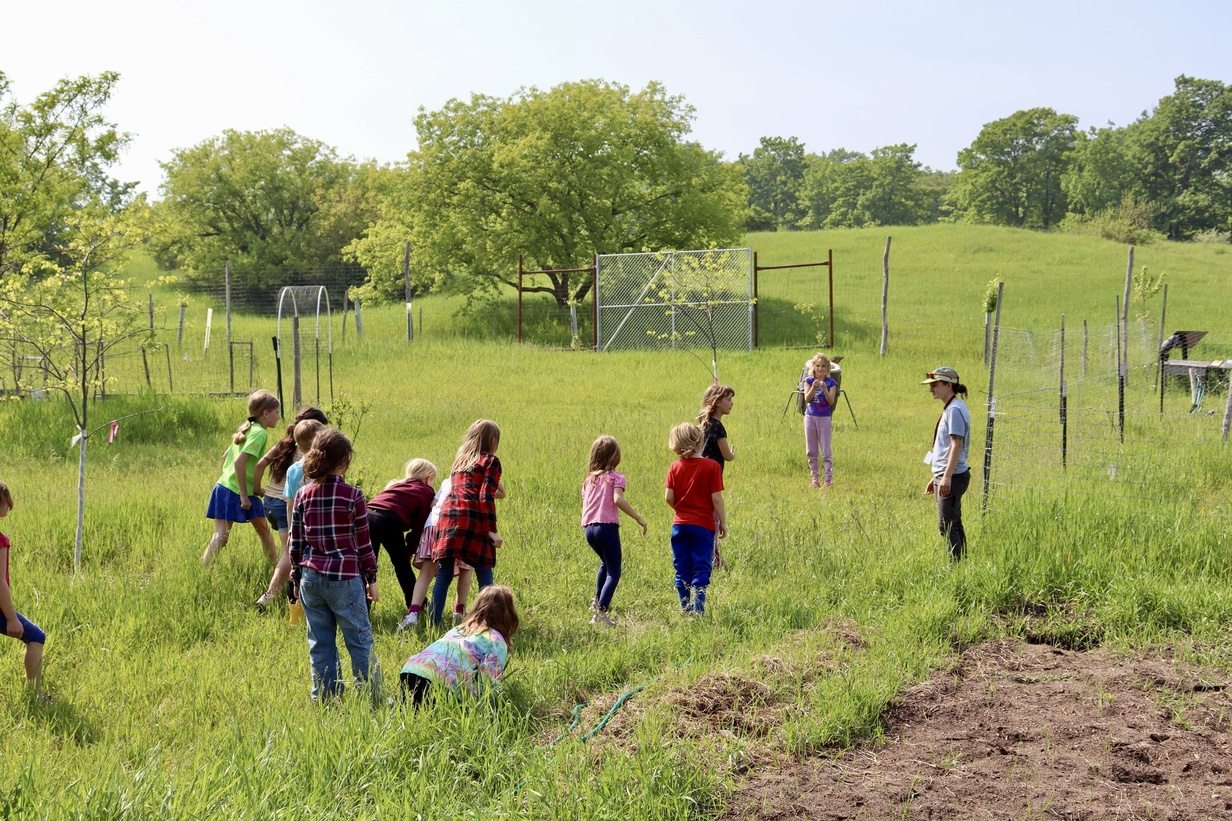
Local After-School Programs, Summer Camps In Jeopardy Thanks To Federal Funding Cuts
By Craig Manning | Aug. 9, 2025
A sigh of relief: That’s how Sarna Saltzman, executive director of Traverse City’s SEEDS Ecology and Education Centers, received the news that the United States Department of Education would be releasing previously frozen funds that pay for the nonprofit's after-school and summer camp programs. Despite the reprieve, though, Saltzman says SEEDS could find itself facing similar funding troubles in the not-so-distant future – something that has the organization looking for ways to “restructure” to reduce its reliance on government grants.
Each year, SEEDS reaches more than 500 local students across 12 rural northern Michigan schools through its after-school and summer camp programming. Families who utilize those programs are able to do so free of charge thanks to Michigan’s Nita M. Lowey 21st Century Community Learning Centers (21CCLC) program. That program directs federal funds “to support the creation of community learning centers that provide academic enrichment opportunities during out-of-school time hours, particularly for students who attend high-poverty and low-performing schools.”
Dollars for 21CCLC programs throughout the country come from the U.S. Department of Education, and are authorized under Title IV, Part B, of the Elementary and Secondary Education Act of 1965. Amidst sweeping funding cuts at the federal level, though, the Department of Education – and particularly Title funds like 21CCLC – have come under the microscope this year.
Nationwide, some 10,000 programs rely on 21CCLC funds to provide outside-of-school activities for approximately 1.4 million students. For this year, those dollars had already been appropriated by Congress in the Fiscal Year 2025 federal budget – which was signed into law by President Trump back in March – and were slated to be released to the states on July 1.
On June 30, though, the Department of Education sent a memo to the states noting that, “Given the change in Administrations, the Department is reviewing the FY 2025 funding” for 21CCLC and five other title grant programs. Other impacted grants help pay for everything from professional development for teachers to student mental health services. According to the Washington Post, a spokesperson for the Office of Management and Budget later revealed that the Trump Administration had held up the funds to investigate whether any of the programs were being used to fund “purposes such as scholarships for undocumented immigrant students or teachings on LGBTQ+ topics.”
In mid-July, a coalition of 24 states, including Michigan, sued the Trump Administration for withholding the nearly $7 billion in appropriated funds. The administration ultimately ended up releasing all the withheld grants to the states not long after, starting with the $1.3 billion for 21CCLC on July 18, and following suit with the dollars for the other five programs a week later.
Saltzman tells The Ticker that SEEDS “got our conditional award letters from the state of Michigan” this week, which clarifies that the once-frozen money is on the way. All told, the organization expects to receive $1.525 million in 21CCLC funding, which will allow programming to continue through the summer and for the duration of the 2025-26 school year in communities like Benzie, Fife Lake, Kaleva, Kalkaska, Marion, and Mesick.
“We are embedded in a dozen schools, providing after-school licensed child care and high-quality after-school experiences four days a week during the school year, as well as for six weeks in the summer for six hours a day. 21CCLC funds those things entirely,” Saltzman says. “So, it’s a big deal for that funding to come through.”
To avoid exacerbating local shortages of both child care and summer camps, Saltzman tells The Ticker that SEEDS decided to keep the faith that the 21CCLC funding would be restored, retaining all staff and continuing with all scheduled camps this summer.
“We did need to communicate with schools and parents, because we knew that people were hearing about [these cuts] from the press, and we didn't want there to be any surprises,” she says. “The first thing we messaged was that we are continuing summer camp as planned. But we also had to share the message of, ‘Hey, we’re really not sure what’s going to happen this fall.’ So, for that reason, the delay was still disruptive, because parents and schools are always trying to plan ahead.”
“Planning ahead” remains a challenge for SEEDS and its partners, even with this funding reprieve. The organization noted in a recent press release that “future years of approved grant funding are in question since the Fiscal Year 2025 reconciliation bill, that Congress passed this summer, effectively zeroes out 21CCLC funding for after school programs.”
“The grants in Michigan are awarded in five-year chunks, so if Congress appropriates the funding as expected each year, then the renewal process is pretty straightforward and non-competitive for those five years,” Saltzman explains. “We have three of these 21CCLC grants to serve our 12 schools, and two of the grants, covering eight of the schools, had just finished year one. We're entering year two now for those grants, so the three additional years are definitely in question.”
With uncertainty looming, Saltzman says SEEDS will spend the next year “talking to our allies and our partners” in hopes of coming up with a contingency plan. That way, if federal funding doesn’t come through for future school years, the organization can be ready.
“We’ll be asking our partners, ‘How can we re-envision this?’” Saltzman says. “What are the most important services to make sure we retain? What do parents need? What do students need? What do schools need? What do employers need? And what are some new ways we can think about partnering to make us less dependent on federal funding?”
Options, she adds, might include ongoing fundraising to pay for the 21CCLC-funded programs, “consolidating a few programs into one location,” finding new partners that can take care of things like food and transportation, and more. “The goal would be to restructure in the best possible way, that serves the most people and has the resources required to make it work well and be of high quality,” she says.
Comment







